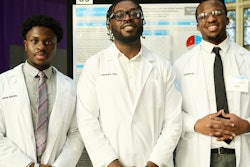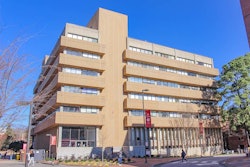Reflecting on the legacy left by Sen. Edward M. Kennedy, President Barack Obama called the late Massachusetts legislator one of the “most accomplished Americans” in history and a man whose work in Congress helped give new opportunities to millions.
“Including myself,” added the nation’s first Back president, while speaking to reporters Wednesday at his rented vacation home on Martha’s Vineyard, Mass. The president ordered government flags lowered to half-staff to honor Kennedy who died at age 77 late Tuesday after battling brain cancer.
Obama pointed out that many people — seniors, children, families — have been improved by Kennedy’s work on key legislation. Many can now “pursue their dreams in an America that is more equal and more just…His extraordinary life on this Earth has come to an end. The extraordinary good that he did lives on,” he said.
In nearly 50 years in the Senate, Kennedy, a liberal Democrat, served alongside 10 presidents his brother John Fitzgerald Kennedy among them compiling legislative achievements on health care, civil rights, education, immigration and more.
“I’m a Senate man and a leader of the institution,” Kennedy said more than a year ago in an Associated Press interview. He left his imprint on every major piece of social legislation to pass Congress over a span of decades. Republicans and Democrats alike lamented his absence as they struggled inconclusively in recent months with President Barack Obama’s health care legislation.
Education and civil rights advocates praised the late senator’s legislative accomplishments for helping create social, health care and educational opportunities for Americans. Charles Evers, a longtime civil rights activist, said “America has lost one giant.” He recalled taking Kennedy on tours of poverty-stricken areas of Mississippi in the 1970s and 1980s. Evers said Kennedy told him he would work to improve those conditions.
Civil rights activist Lawrence Guyot said when the Voting Rights Act of 1965 was up for its first extension, activists turned to Kennedy to help lead the fight.
“Sen. Kennedy leaves a legacy that will live on for many years to come. He was a true champion and one of the most important advocates of civil rights,” Marc H. Morial, president and CEO of the National Urban League, said in a statement. “As one of the last U.S. Senators who fought for the Civil Rights Act of 1964, Sen. Kennedy stood for many of the same rights that we fight for daily – equality, education, employment, and healthcare.
To the education community, Kennedy became a significant presence in the fight for quality education. He is credited as “a champion for federal TRIO programs, since their establishment in 1965.”
“Sen. Kennedy’s continuous support has allowed millions upon millions of low-income children to access college. He helped to foster the integrity of these programs and, as such, opened a gateway to postsecondary education for students who may have otherwise not been given an opportunity,” according to a statement from the Washington-based Council for Opportunity in Education organization.
Towards the end of his career, Kennedy was still eager to make a difference. At a critical point in the 2008 presidential race, he endorsed Obama over Hillary Rodham Clinton for the Democratic nomination, then embarked on an ambitious schedule of campaign appearances.
He cast his endorsement in terms that linked Obama to the Kennedys.
“There was another time, when another young candidate was running for president and challenging America to cross a new frontier,” Kennedy said.
That endorsement came a few months before the seizure that signaled the presence of a deadly brain tumor. There were memorable public moments ahead, a surprise visit to the Senate to cast the decisive vote on a Medicare bill and, before that, a turn at the podium at the Democratic National Convention in Denver.
“As I look ahead, I am strengthened by family and friendship,” Kennedy said in Denver last summer. “So many of you have been with me in the happiest days and the hardest days. Together we have known success and seen setbacks, victory and defeat.”
© Copyright 2005 by DiverseEducation.com


















